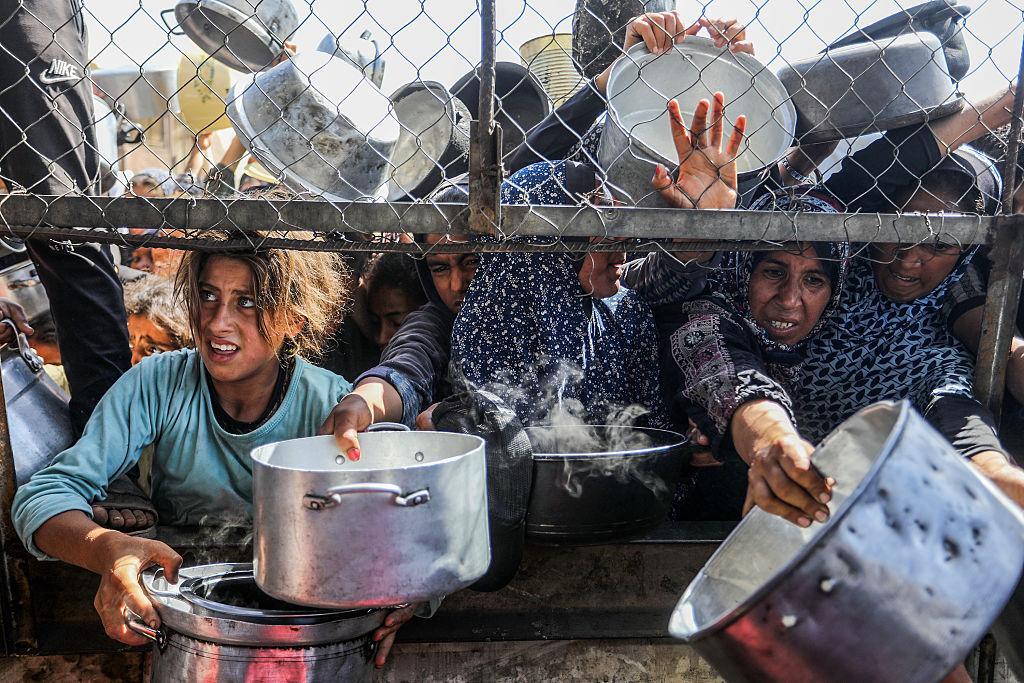
Eid in Gaza: Prayer amid Ruins, Hunger & Growing Humanitarian Crisis
As the sun set on June 6, 2025, Palestinians in Gaza gathered in open spaces, away from the destruction of their mosques, to observe Eid al-Adha. The atmosphere was somber, with the sounds of gunfire and explosions still echoing in the background. The usually festive holiday was marred by the devastating aftermath of the ongoing conflict, which has left the region reeling.
Over 54,000 lives have been lost, and thousands more have been displaced, leaving many without access to basic necessities like food, water, and shelter. The destruction of homes, infrastructure, and essential services has pushed the already vulnerable population to the brink. The humanitarian crisis in Gaza is growing by the day, with the United Nations warning of impending famine affecting nearly 500,000 people.
Despite the dire circumstances, the Palestinians in Gaza found solace in their faith. They gathered in open spaces, often with makeshift prayer mats and chairs, to perform their Eid prayers. The usually joyful holiday, marked by feasting, gift-giving, and family reunions, was a stark contrast to the devastation and despair that surrounds them.
The Eid celebrations in Gaza are a testament to the resilience and faith of the Palestinian people. Despite the unimaginable hardships they face, they continue to find strength in their religion and community. The Eid prayers were a moment of peace and tranquility in a region torn apart by conflict and violence.
However, the humanitarian crisis in Gaza is far from over. The blockade imposed by Israel, which restricts the movement of people and goods, has exacerbated the situation. The economy is on the brink of collapse, and the average Palestinian household struggles to make ends meet. The lack of access to basic necessities like food, medicine, and clean water has pushed many to the edge.
The UN has warned that the situation in Gaza is catastrophic, with an estimated 500,000 people facing food insecurity. The agency has called for urgent action to address the crisis, including the lifting of the blockade and the provision of humanitarian aid. Despite these efforts, the situation remains dire, with many struggling to access even the most basic necessities.
The Eid celebrations in Gaza are a poignant reminder of the ongoing humanitarian crisis in the region. As the world watches, the Palestinians in Gaza continue to endure the devastating consequences of conflict and blockade. Their story is a testament to the power of faith and community in the face of adversity.
In the words of a Gaza resident, “Eid is a time of joy and celebration, but this year it’s different. We’re struggling to survive, and every day feels like a battle. We’re grateful for the support we receive, but we need more. We need the world to hear our story and to take action to end this humanitarian crisis.”
As the international community continues to grapple with the complexities of the Israeli-Palestinian conflict, it is essential to remember the human cost of this crisis. The Palestinians in Gaza are not just statistics or headlines; they are people, with families, friends, and futures. They deserve our compassion, our support, and our action.
In the words of the United Nations, “The situation in Gaza is catastrophic, and it requires immediate attention and action. We urge all parties to work towards a peaceful resolution and to prioritize the well-being of the Palestinian people.”
As the world continues to respond to the humanitarian crisis in Gaza, it is essential to remember the resilience and faith of the Palestinian people. Despite the devastation and despair, they continue to find strength in their community and their faith. Their story is a testament to the power of humanity in the face of adversity, and it serves as a reminder of the importance of working towards a peaceful and just resolution to this crisis.
Source: https://thecsrjournal.in/eid-al-adha-in-gaza-faith-endures-amid-devastation-and-food-shortages/






